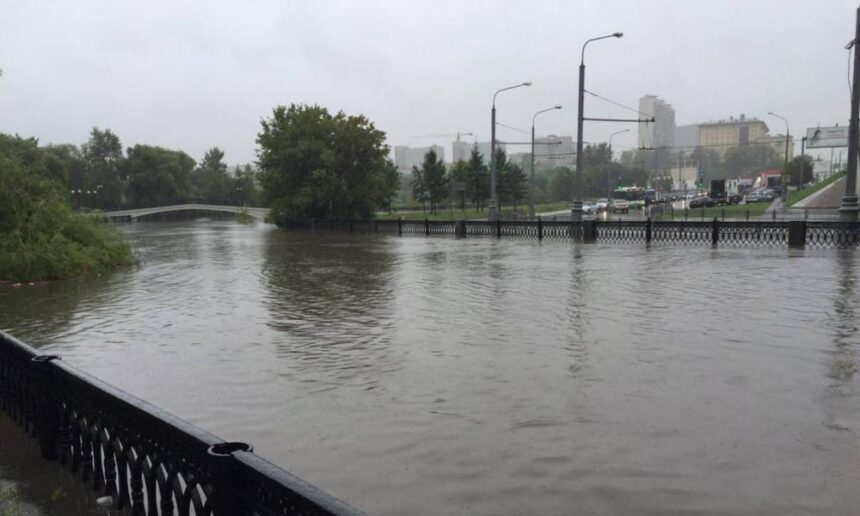THE Economist, an international news and analysis journal, starts each issue with the following: “First published in September 1843 to take part in ‘a severe contest between intelligence, which press forward, and an unworthy, timid ignorance obstructing our progress.”
The fight started 166 years ago in England, is just being heated in the Mongolian society at present day. Unfortunately, at this unequal competition, the intelligence side is suffering a losing battle thus far.
There is a small group of people that appear to be concerned, but harbor great interest in keeping society ignorant. They come to political power in turns, and co-act very articulately, embezzling public property for many years. Their sneaky and well-covered actions are beginning to cause serious damages to people’s security and freedom in Mongolia.
The most clear and recent examples of this are the floods of Ulaanbaatar city.
Less than two hours of rainfall turned into a flash flood and impeded city life over the course of a few days, causing a number of deaths, and massive damages to property. Flooding wiped out of gers in the hillsides of UB, and stirred wastewater into the city’s downtown. When the sun emerged again, pollution reached the lungs of citizens and increased the frequency of itchy eyes and other cold-like symptoms.
Both in gers, and in newly constructed houses, people are catching water leaks from their roofs with buckets, shocked by broken walls and the masses of dirt that washed onto their floors. People are shocked by looking at broken walls and flooding dirt masses on their floors.
As we help the people who survived the floods while repairing the damaged roads and bridges, we, Ulaanbaatar residents, still have to discuss the real reasons why it happened, and how to make sure this disaster does not happen again. This is a challenge.
We are quick to accept that the flooding was due to Mother Nature.
The higher ranking government officials instruct the lower ranking ones to find out why the dams are not functioning, who is responsible for the flood breach, and to hold them accountable. In short, it ‘s another dramatic show by the government to solve a problem on a surface level.
While the government fingerpoints, we must address the real reason for the flooding in order to assure it does not happen again.
The truth of the matter is, the flooding happened as part of a public governance crisis which is rooted deep inside the political establishment.
Those who created this crisis will be responsible not only for this flooding, but also for possible collapses of newly constructed houses, too.
We, the citizens of Ulaanbaatar city, are witnessing how our city officials have been selling public property with bribes. Every piece of land that can be connected to the existing infrastructure is gone. Instead of creating new infrastructure around the city, the government is busy with its own interest. City planning does not exist for their gain.
As long as you’re willing to foot the bill, you can buy any stretch of land-even on dams, children’s playgrounds, on the top of major heating and waste pipes, and in any valley of the so-called ‘protected areas’.
In outskirts of downtown where the infrastructure does not exist, the local officials and district/khoroo governors enjoy a level of privilege, while allowing the new settlers to place their fences anywhere in the ger districts if they are willing to pay the price
As a result, all old dams are filled with waste, and buildings are being constructed in them. The contractors ‘forget’ to build the drainage system under the new roads, and the old road drainage system is destroyed by illegal buildings on or near the new ones.
As a result the city has no dam to allow rainwater to flow out of the city, which caused flooding by any medium-level rainfall.
These disasters are the direct result of mismanagement by nominees of political parties (the mayor of UB city is not elected by the city residents but nominated), who have been embezzling the public properties, instead of protecting and taking care of them. You can only harvest what you plant.
Underdeveloped infrastructure serves the interests of our city management, and not citizens.
Developing a good road, water and waste management infrastructure around the city in the world’s 17th largest country will make the lands in the center of this capital worthless compared to the mass of money made today. In turn, proper infrastructure would make political positions valueless. There would be few public service if they didn’t make their money somehow.
However, we all know how to get out from this public governance crisis.
The rulers in this county hold accountable all the public officials who have been embezzling public properties. That is understood by the rulers very well by now. The reason that these people don’t act is that they are probably part of the problem.
If there are still some sober-minded, “clean” members in those ruling political parties, it is a time to clear their parties’ names by getting rid of the criminals.
It is the way that the political parties will remain active in the future. Otherwise, the history will hold them accountable for their nonaction and these parties will disappear along with all the members. If you are seriously sick, either you treat it or you die.
In history, intelligence always takes over ignorance in the end. It is only a matter of time. One ay there will be no gers in Ulaanbaatar.
There will be no room for corruption in our public governance. Each resident will live in a house that has water and bathroom. At that time, nobody can become a city resident by pitching their ger wherever they please.
There will be no chance for small rain to become a flood. The people will live in safe houses. The only issue is, when will it happen?
UB Post
Printed on 31 July 2009







